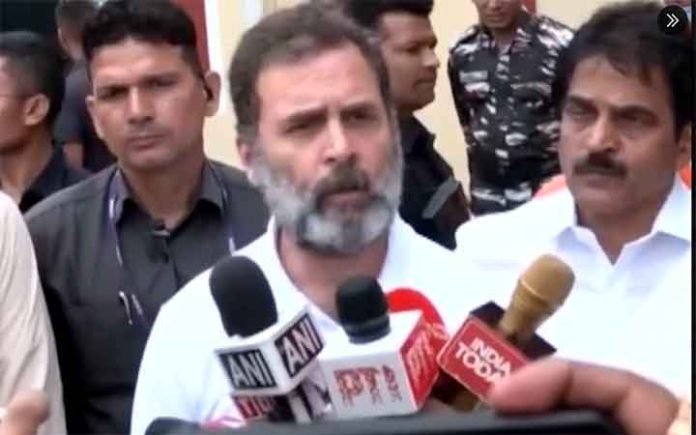INVC NEWS
New Delhi : The Indian political arena recently witnessed a stark confrontation of historical perspectives, marked by Union Home Minister Amit Shah’s criticism of the nation’s first Prime Minister, Jawaharlal Nehru. This move, highlighting a deeper political stratagem, elicited a sharp rebuttal from Congress leader Rahul Gandhi, who accused Shah of historical misinterpretation.
Understanding the Historical Context
Jawaharlal Nehru, a pivotal figure in India’s independence and its first Prime Minister, has long been a subject of debate and scrutiny. His policies and decisions, particularly regarding Kashmir, have influenced the political and social fabric of India. Amit Shah, in his speech at the Rajya Sabha, squarely blamed Nehru for the complexities surrounding the Kashmir issue, suggesting a historical oversight in Nehru’s approach.
Rahul Gandhi’s Counter: A Defense of Nehru’s Legacy
In a swift response, Rahul Gandhi, a prominent Congress leader and a descendent of Nehru, took a stand to defend his great-grandfather’s legacy. Gandhi emphasized Nehru’s sacrifices for the nation, including years of imprisonment during the freedom struggle. He argued that Shah’s lack of historical understanding is evident in his repeated attempts to ‘rewrite’ history, a claim that resonates with a segment of the Indian populace that views Nehru’s contributions positively.
The Political Undercurrents of the Debate
This exchange between Shah and Gandhi goes beyond mere historical interpretation. It reflects the ongoing political tussle between the Bharatiya Janata Party (BJP) and the Congress, with both parties using historical narratives to further their political agendas. The BJP’s critique of Nehru aligns with its broader ideological framework, which often challenges the Congress’s narrative of India’s history.
Shifting Focus: The Strategy Behind the Historical Debate
Gandhi’s rebuttal also points to a strategic maneuver to shift the focus from current issues. He suggests that the BJP is using historical debates to divert attention from pressing matters like caste census and economic distribution. This tactic, according to Gandhi, is a deliberate attempt by the BJP to avoid discussions on issues that are crucial to the country’s socio-economic landscape.
Congress’s Ongoing Campaign: Addressing Current Challenges
Rahul Gandhi affirmed that the Congress would continue to bring forward issues concerning the poor and marginalized. He pledged that his party would ensure justice and rights for the underprivileged, a commitment that resonates with the Congress’s longstanding position as a proponent of social justice.
The Historical Debate and Its Implications
This exchange between Amit Shah and Rahul Gandhi is not just a clash of personalities but a reflection of the deeper ideological and historical divides in Indian politics. It underscores how history is often employed as a tool in contemporary political battles, influencing public opinion and shaping national discourse. As India continues to grapple with its complex past, such debates play a critical role in defining its future political trajectory.



















